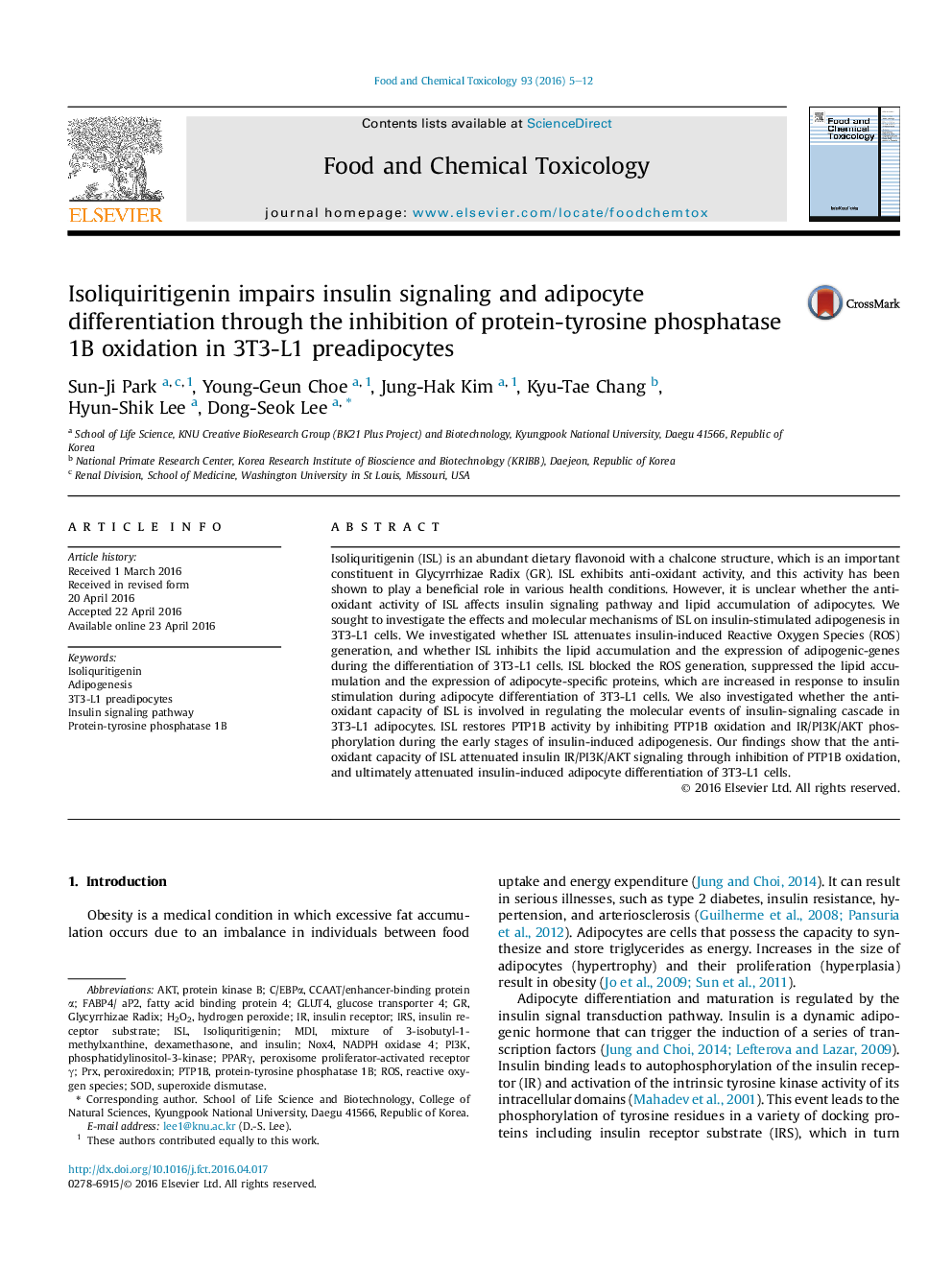| کد مقاله | کد نشریه | سال انتشار | مقاله انگلیسی | نسخه تمام متن |
|---|---|---|---|---|
| 5849244 | 1561751 | 2016 | 8 صفحه PDF | دانلود رایگان |

- ISL suppresses lipid accumulation and expression of adipogenic-gene expression in 3T3-L1 cells.
- ISL blocks ROS generation that attenuates PTP1B oxidation and rescues PTP1B activity in the early stages of adipogenesis.
- ISL restores PTP1B activation that inhibits the insulin IR/PI3K/AKT signaling, and differentiation of 3T3-L1 adipocytes.
Isoliquritigenin (ISL) is an abundant dietary flavonoid with a chalcone structure, which is an important constituent in Glycyrrhizae Radix (GR). ISL exhibits anti-oxidant activity, and this activity has been shown to play a beneficial role in various health conditions. However, it is unclear whether the anti-oxidant activity of ISL affects insulin signaling pathway and lipid accumulation of adipocytes. We sought to investigate the effects and molecular mechanisms of ISL on insulin-stimulated adipogenesis in 3T3-L1 cells. We investigated whether ISL attenuates insulin-induced Reactive Oxygen Species (ROS) generation, and whether ISL inhibits the lipid accumulation and the expression of adipogenic-genes during the differentiation of 3T3-L1 cells. ISL blocked the ROS generation, suppressed the lipid accumulation and the expression of adipocyte-specific proteins, which are increased in response to insulin stimulation during adipocyte differentiation of 3T3-L1 cells. We also investigated whether the anti-oxidant capacity of ISL is involved in regulating the molecular events of insulin-signaling cascade in 3T3-L1 adipocytes. ISL restores PTP1B activity by inhibiting PTP1B oxidation and IR/PI3K/AKT phosphorylation during the early stages of insulin-induced adipogenesis. Our findings show that the anti-oxidant capacity of ISL attenuated insulin IR/PI3K/AKT signaling through inhibition of PTP1B oxidation, and ultimately attenuated insulin-induced adipocyte differentiation of 3T3-L1 cells.
Journal: Food and Chemical Toxicology - Volume 93, July 2016, Pages 5-12